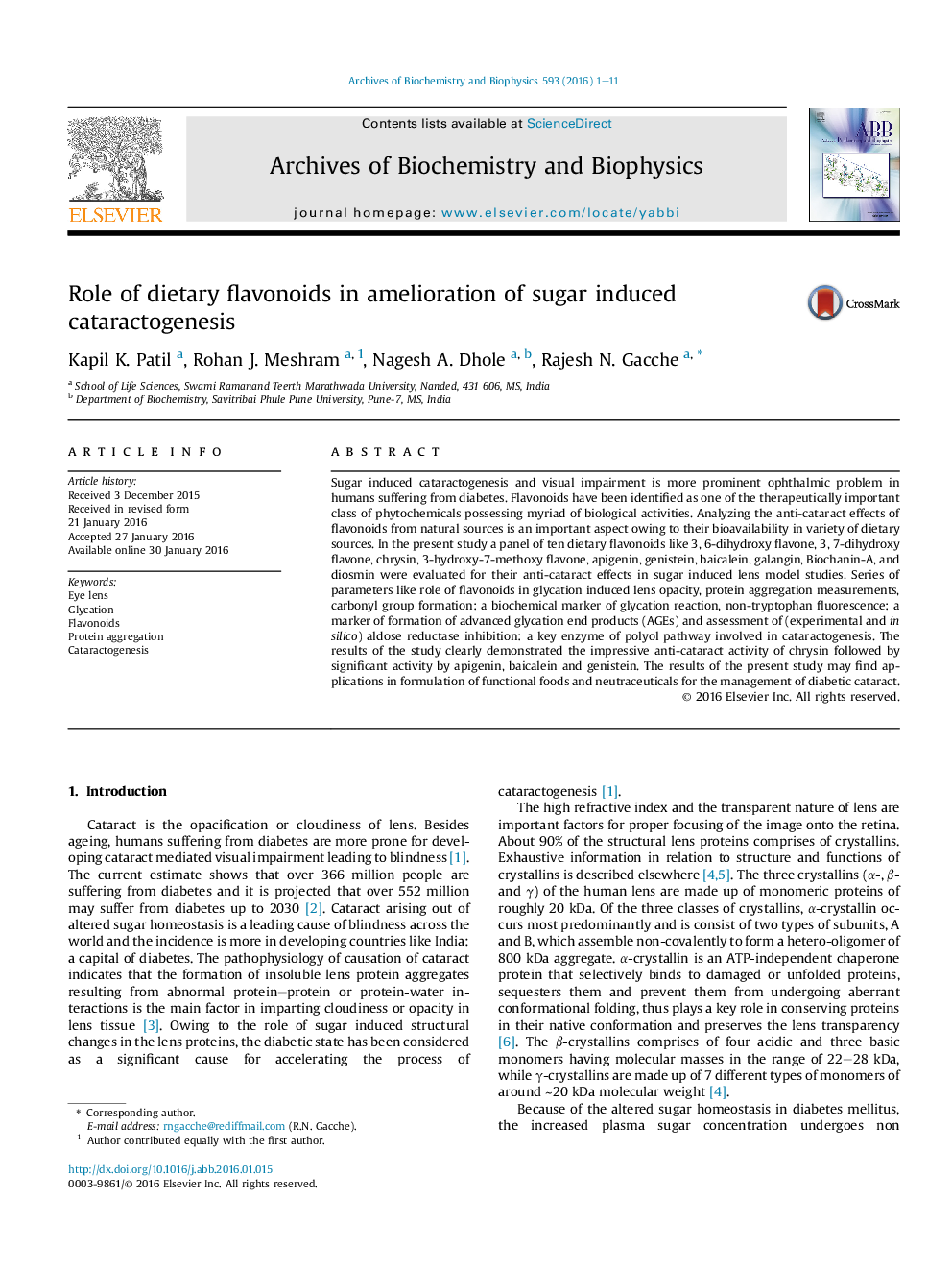| Article ID | Journal | Published Year | Pages | File Type |
|---|---|---|---|---|
| 1924783 | Archives of Biochemistry and Biophysics | 2016 | 11 Pages |
•Assessment of flavonoids as potential anticataract agent in glucose induced cataractogenesis.•Evaluation of effect of flavonoids on glycation induced lens opacity and protein aggregation.•Defining structure activity relationship of flavonoids in relation to cataractogenesis.•An in silico studies for unraveling the mechanism of aldose reductase inhibition using flavonoids.
Sugar induced cataractogenesis and visual impairment is more prominent ophthalmic problem in humans suffering from diabetes. Flavonoids have been identified as one of the therapeutically important class of phytochemicals possessing myriad of biological activities. Analyzing the anti-cataract effects of flavonoids from natural sources is an important aspect owing to their bioavailability in variety of dietary sources. In the present study a panel of ten dietary flavonoids like 3, 6-dihydroxy flavone, 3, 7-dihydroxy flavone, chrysin, 3-hydroxy-7-methoxy flavone, apigenin, genistein, baicalein, galangin, Biochanin-A, and diosmin were evaluated for their anti-cataract effects in sugar induced lens model studies. Series of parameters like role of flavonoids in glycation induced lens opacity, protein aggregation measurements, carbonyl group formation: a biochemical marker of glycation reaction, non-tryptophan fluorescence: a marker of formation of advanced glycation end products (AGEs) and assessment of (experimental and in silico) aldose reductase inhibition: a key enzyme of polyol pathway involved in cataractogenesis. The results of the study clearly demonstrated the impressive anti-cataract activity of chrysin followed by significant activity by apigenin, baicalein and genistein. The results of the present study may find applications in formulation of functional foods and neutraceuticals for the management of diabetic cataract.
Graphical abstractFigure optionsDownload full-size imageDownload high-quality image (213 K)Download as PowerPoint slide
